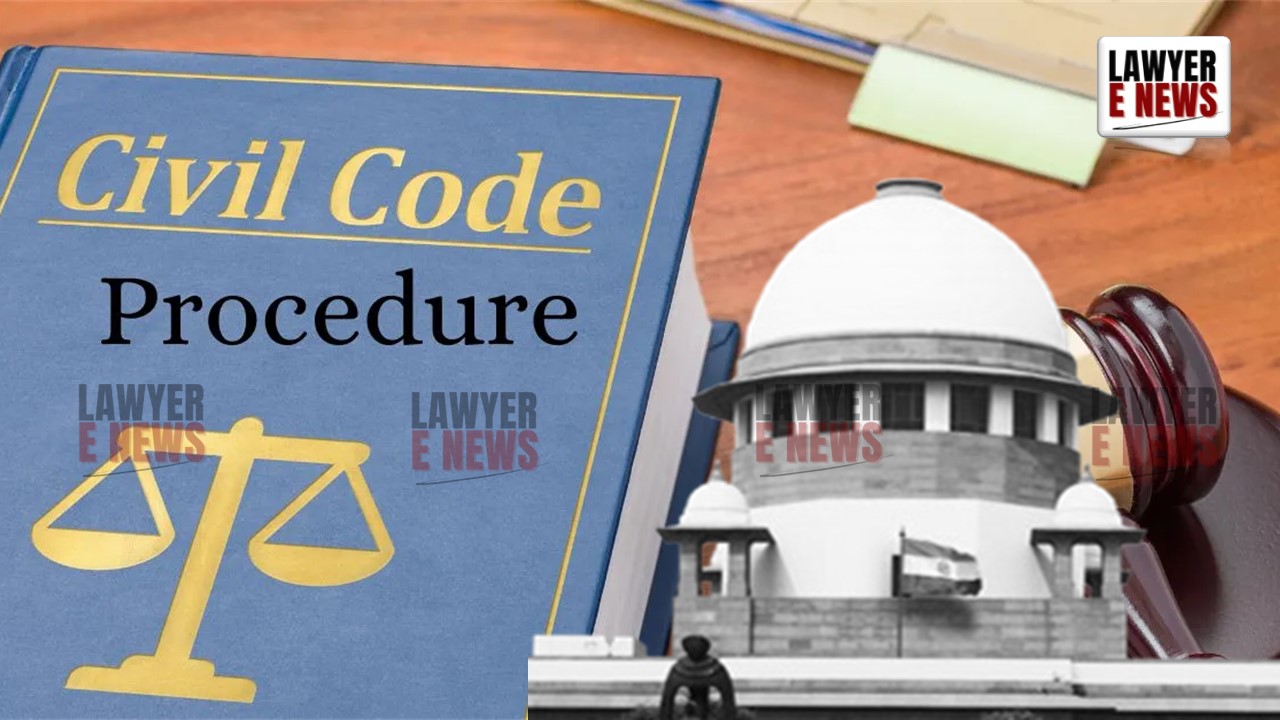-
by Admin
15 February 2026 5:35 AM



Supreme Court of India delivered a significant ruling addressing the rights of pendente lite transferees in execution proceedings. The Court upheld the Kerala High Court's decision, confirming that pendente lite transferees are entitled to challenge execution proceedings and defend their independent title under Order XXI Rule 99 of the Code of Civil Procedure, 1908 (CPC), even when they were not impleaded in the original partition suit. The appeals filed by the appellants, who were the legal heirs of the original plaintiff, were dismissed.
“The Term ‘Stranger’ under Order XXI Rule 99 Includes Pendente Lite Transferees”
In a key observation, the Court stated that the term “stranger” as used in Order XXI Rule 99 CPC includes a pendente lite transferee, even though such a person was not a party to the original suit. The judgment reiterates that transferees during the pendency of litigation (lis pendens) are not without legal recourse if they are dispossessed during execution of a decree.
The dispute originated in a partition suit filed in 1956, which culminated in a final decree in 1970. However, the decree was engrossed on stamp paper only in 1990, following which the appellants (legal heirs of the original plaintiff) sought to execute the decree. The respondents, legal heirs of a pendente lite transferee (Mr. Raghuthaman), challenged the execution of the decree, contending it was time-barred and that they had acquired rights in the suit property during the pendency of the litigation.
The trial court initially dismissed the respondents' claim for redelivery of the property. However, the Kerala High Court reversed this decision, remanding the matter to the trial court for fresh consideration, holding that the respondents had the right to assert their independent claim despite being pendente lite transferees.
The case presented two critical legal questions:
Limitation Period for Execution of a Partition Decree: The appellants contended that the execution petition was filed within the 12-year limitation period under Article 136 of the Limitation Act, 1963, which begins from the date of the final decree. However, the respondents argued that the petition was time-barred because it was filed more than 20 years after the decree.
Rights of Pendente Lite Transferees: The appellants argued that pendente lite transferees, being bound by the doctrine of lis pendens under Section 52 of the Transfer of Property Act, 1882, had no standing to resist execution of the decree. Conversely, the respondents claimed an independent right to the property, asserting that their predecessor had been dispossessed unlawfully during the execution process.
“Limitation Period Begins from the Date of Decree, Not Engrossment”
In its judgment, the Supreme Court reiterated the well-settled principle from the case of Chiranji Lal (D) by LRs v. Hari Das (D) by LRs, (2005) 10 SCC 746, that the limitation period for executing a partition decree begins from the date the final decree is passed, not from the date it is engrossed on stamp paper.
“The starting of period of limitation for execution of a partition decree cannot be made contingent upon the engrossment of the decree on the stamp paper. The engrossment of the decree on stamp paper would relate back to the date of the decree,” the Court held [Para 17].
Accordingly, the Court found that the execution petition filed in 1991 was time-barred since it was filed more than 12 years after the final decree was passed in 1970.
The Court also clarified the application of the doctrine of lis pendens, which, while subordinating the rights of a pendente lite transferee to the outcome of the original litigation, does not render such transfers void.
“The doctrine of lis pendens as provided under Section 52 of the Transfer of Property Act does not render all transfers pendente lite void ab initio; it merely renders rights arising from such transfers subservient to the rights of the parties to the pending litigation” [Para 15].
The Court affirmed that the respondents’ predecessor, being a pendente lite transferee, was entitled to defend his independent title and interest in the property, even after being dispossessed under the execution decree.
The Supreme Court upheld the Kerala High Court’s decision to remand the matter for fresh adjudication of the respondents' title claim. The Court dismissed the appellants' argument that the execution was within the limitation period and confirmed that pendente lite transferees are not barred from asserting their rights under Order XXI Rule 99 CPC.
Date of Decision: October 14, 2024
Renjith K.G. & Others v. Sheeba
